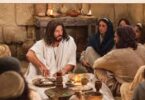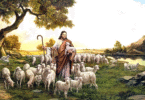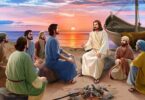Fourth Sunday of the Year (Year B)
Scriptures: Deut. 18: 15-20; Ps. 94:1-2, 6-9; 1 Cor. 7:21-35; Mk. 1:21-28
Someone rightly said that we do not remember what was taught in the school and colleges but we have not forgotten our teachers. There are some teachers who are still in touch with us and we love to connect with them; we remember the way they behaved with us. APJ Abdul Kalam, the former president of India once said, “Teaching is a noble profession that shapes the character, calibre and future of an individual. If the people remember me as a good teacher, that will be the biggest honour for me”. He died while addressing the audience. After his presidency, he devoted his life to teaching. We need teachers in our lives. Our parents are the first teachers but the teachers complement what they do at home. Therefore, the teaching profession is the only profession that creates all the other profession.
Today’s liturgy helps us understand that the people of Israel knew the importance of teachers in their lives. Life without a teacher had made them slaves of the pharaoh in Egypt. Moses had brought them out of Egypt. He guided them to the promised land. Moses is called in Hebrew as Mose Rabbenu (Moses the teacher). The first five books which are known as Pentateuch are ascribed to Moses. Moses received ten commandments from the Lord. They are authoritative teachings and instructions from God.
In today’s first reading, Moses is about to die. The people of Israel were terrified with the fact that their great teacher would not be there. They knew that their lives were full of misery without the teacher. Moses was not able to impart leadership to his own sons. Moses wanted to know what would happen to his people. God answered Moses that he would help the people. God says, “raise up for them a prophet like you from among their kin, and … put My words into his mouth; he shall tell them all that I command him.” The function of the prophet was to mediate between God and man. God promised Moses that he would not abandon his people.
The promise made to Moses was fulfilled in Jesus Christ. Jesus is known by different names in the Gospels. One of the strongest portraits of Jesus in the Gospel is that of a teacher. Ray Pritchard, in one of his articles, give us an interesting fact of the Bible. The article claims that Jesus was addressed directly 90 times in the Gospel, out of which 60 times he was called teacher. The multitude, the disciples and Lord himself used the term for himself. He said, “you call me teacher and Lord, and rightly so, for that is what I am” (Jn. 13:13) Jesus’ portrayal as a teacher is seen in the temple when he was just 12 years of old. He was found teaching elders in the temple. Jesus spent his maximum time in teaching where he was. It may be in the temple (Mk. 11:17), in the synagogue (Mk. 6:2), in the house, from a boat, on the road and by the shore, etc. It means to say that Jesus taught people wherever he went. Jesus ended his mission on earth by imparting his mission to us. He called us to teach (Mt. 28:19).
St. Peter rightly recognised the fulfilment of the promise made by God to Moses in the person of Jesus Christ. He preached to the Jews the same scriptures from the book of Deuteronomy. He said, “the Lord your God will raise up for you a prophet like me from among your own people; you must listen to everything he tells you.” (Acts 3:22) St. Peter believed that Jesus is the fulfilment of the promise of God. Jesus is considered to be the most powerful teacher of all time. He taught two thousand years ago. He has the biggest numbers of followers. His teaching has touched millions of people. Jesus taught with authority and power. His teaching was new and unique. He coupled his teaching with the compassionate heart. He healed and delivered people from sickness. His teaching challenged the people. But above all Jesus taught by his personal life and experience. The very life of Jesus was a lesson. He gave the best sermon on the cross because he died for the world.
We are called to be teachers of the faith by virtue of our baptism. The faith has to be proclaimed only then it is heard. We have Jesus as the supreme model of teachers. He taught us by his personal life and experience. We called to imitate Christ in our lives. Moses and St. Paul were great teachers to his people. Jesus continues to inspire millions of people every day. How about us? Do we take our responsibility of teaching seriously? Let us pray during this Eucharist that we may learn to teach the Gospel by our words and deeds.






